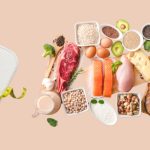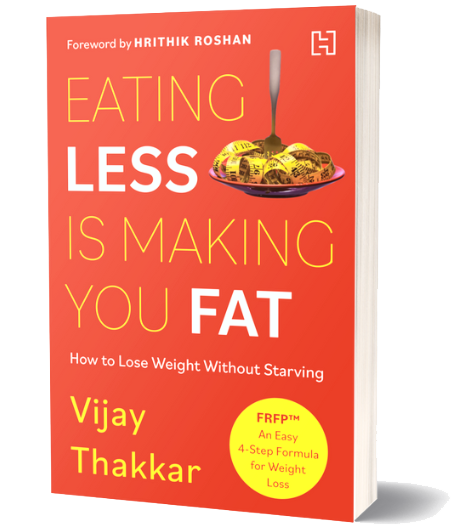Everyone around us is talking about detox diets. From social media influencers promoting green juices to celebrities endorsing clean diets, detox diets have been the talk of the town for some time now. But how many of these diets are actually worth adopting? Do they really remove toxins from the body? Does the body need such external detoxification? Let’s dive into the reality of detox diets.
Understanding detox diets
While the idea of detox diets is appealing, it is important to understand that our body has the natural process of detoxing waste through the lungs, kidneys, liver, and skin. These organs work round the clock to eliminate waste from the body and improve overall health. However, detox diets also claim to remove toxins from the body, promote weight loss and keep the body healthy. Some of the detox diets include:
- Herbal teas
Popularly known as colon flushers and liver cleaners.
- Juice cleanses
Consuming vegetable and fruit juices instead of proper meals.
- Avoiding certain foods
Restrictive dieting includes eliminating dairy, gluten, sugar, or processed foods.
- Fasting
The process of skipping meals to detox and reset the body.
How does natural detoxification work in our body
The human body can detoxify itself efficiently, and the whole process works quite diligently. The kidneys filter out the waste from the blood and eliminate it in the form of urine, whereas the liver breaks down the toxins, cleans the blood and creates bile to support digestion. Our skin is an excellent barrier against harmful UV rays and removes toxins through sweat. Carbon dioxide and other harmful gases are removed through the lungs, while the colon promotes effective bowel movements and excretes waste.
However, some of these organs may not work to their full capacity if a person has an underlying condition that affects these organs. Apart from that, the body is fully capable of detoxifying or cleansing itself and doesn’t require any external detox.
How detox diets work
Limited scientific evidence supports detox diets as a promising course of action for removing toxins from the body. Some people may experience weight loss after resorting to detox diets, but this may be temporary water loss and not fat loss. Detox diets promote increased energy due to the cutting out of processed foods, and they also help improve digestion. The short-term weight loss is due to calorie restriction and reduction in water weight, as mentioned above.
Detox diets may not eliminate toxins beyond the amount that the body naturally does. Due to a lack of solid data, it is imperative to understand detox diets’ pros and cons before considering one. Any detox diet does not promote sustainable weight loss. Once the person stops the diet, the weight often returns. Moreover, sudden weight loss may not be healthy for the body, so getting thorough advice from a nutritionist about each detox diet is important.
Risks of detox diets
Extreme detox diets may pose health threats if not monitored correctly. Understanding the individual’s body needs before going through a detox diet is vital. Some of the potential health risks involve:
Low energy – cutting down on calories may cause fatigue and dizziness, keeping one lethargic for the whole day.
Nutritional deficiencies – eliminating proteins, vitamins, and fats from the regular diet may impact the body, cause nutritional deficiencies, and trigger underlying conditions.
Muscle loss – short-term and fast weight loss can break down muscle.
Weak gut – consuming laxatives and fibre may affect the digestive system and gut health.
People with high blood sugar, heart conditions, or thyroid problems may find detox diets extremely uncomfortable since these diets may disrupt the body’s blood sugar levels and affect the effectiveness of medications.
What are the healthier alternatives to detox diets
Extreme detox diets may have health implications. However, resorting to sustainable lifestyle habits can help in promoting holistic well-being. Some of the healthier alternatives to detox diets include:
Staying hydrated
Drinking plenty of buttermilk and coconut water can help one stay hydrated throughout the day. Maintaining a high fluid intake will assist in balancing the body’s electrolyte levels.
Eating whole foods
A balanced and wholesome diet requires lean proteins, vegetables, fruits, and whole grains. It is important that we consume whole foods on a regular basis to maintain a healthy weight and keep ourselves energetic.
Regular exercising
A good metabolism aids in maintaining a healthy body. That’s why exercising regularly is vital to boost the body’s metabolism. Practicing yoga, jogging, walking, and simple strength training exercises can help boost metabolism.
Supporting gut health
Consuming probiotic foods such as fermented pickles and curd keeps the gut healthy. This helps in increasing one’s ability to fight infections and build a solid immune system.
Getting a good night’s sleep
Prioritising sleep is crucial. A good night’s sleep of at least 7 to 8 hours gives complete rest to the body and builds a strong recovery system. Our body needs rest to heal, and a long, calm sleep relaxes the body and gives it the much-needed recovery time.
Cutting down on processed foods
Eating excessive salt, fried food, and sugary snacks may lead to weight gain and heart problems. Limiting the intake of processed foods reduces the chances of such health issues.
Superfoods: Natural detoxification
Substituting detox diets with traditional Indian superfoods can help build a stronger immune system and aid in the body’s natural detoxification process. Some superfoods that are powerful detox foods are:
Amla
Indian gooseberry or amla is loaded with vitamin C and helps restore the body’s immunity. One can include amla in their daily diet in the form of amla juice or cut it into slices and enjoy it with some salt and pepper.
Turmeric
Turmeric is packed with curcumin, which has antioxidant and anti-inflammatory properties. Consuming turmeric is extremely helpful and is a natural detox without a say! Rich in phytonutrients, turmeric assists in shielding the cells from any damage.
Coriander seeds
Looking for a natural detox food to support the digestive system and the liver? Coriander seeds contain vitamin K, which also helps repair bone loss and lower blood pressure. One can grind or toast them and add them to your daily meal for wholesome nutrition.
Conclusion
Although it’s fascinating to resort to detox diets for a healthy lifestyle, it’s crucial to understand the do’s and don’ts and how our body reacts to each of these diets. Keep this article handy to know about the body’s natural detox processes and what foods can help eliminate the toxins and assist in our wholesome wellbeing.








